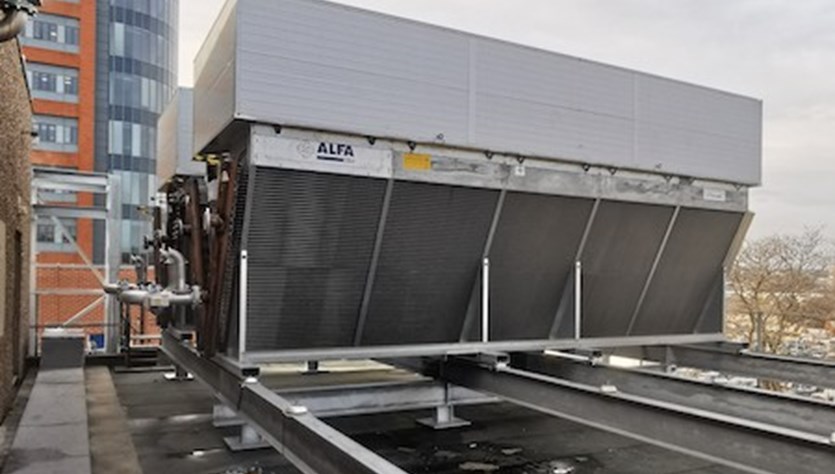Leeds Teaching Hospitals NHS Trust (LTHT) has been awarded over £20m from a government fund to install low carbon heating and energy efficiency measures across the Trust estate which are being delivered by Vital Energi.
Funded through the Public Sector Decarbonisation Scheme (PSDS), the scheme provides grants for public sector bodies to fund heat decarbonisation and energy efficiency measures. With energy costs rising and the Trust committing to achieving net zero carbon emissions by 2040, the decarbonisation of heat within the Trust's buildings poses a significant challenge.
Phil Mottershead, Vital Energi’s Project Development Director commented, “The Trust have made a commitment to achieve net zero by 2040 and this project is an example of them putting that commitment into action. They have a wide-ranging approach to carbon reduction which has seen them focus on the highest C02 reduction measures to deliver the most effective project. This, combined with connection to the Leeds PIPES network, represents a step change for them in the way they generate and use heat and we’re delighted to be helping them on their net zero journey.
The initial programme of works has seen the installation of air source heat pumps, which will reduce the consumption of natural gas, installing photovoltaics for electrical generation, switching to energy efficient LED lighting and replacing single glazed windows with low U value double glazing to reduce building fabric heat loss.
The next phase of work will focus on reducing energy demand by installing draft proofing and roof insulation and expanding the number of buildings connected to the local district heating network. In April, Beckett Wing at St James's University Hospital became the first Trust building to connect to Leeds PIPES. The heating network provides affordable, reliable and sustainable heat to connected buildings. It uses recovered heat to serve the households and businesses across the city, including the Trust, to provide a low-carbon alternative to the traditional burning of fossil fuels for hot water heating.

It is estimated that the projects will reduce carbon emissions by 5,500 tonnes per annum, which is equivalent to flying one way from Leeds Bradford Airport to New York 6,875 times, and the amount absorbed by 275,000 trees.